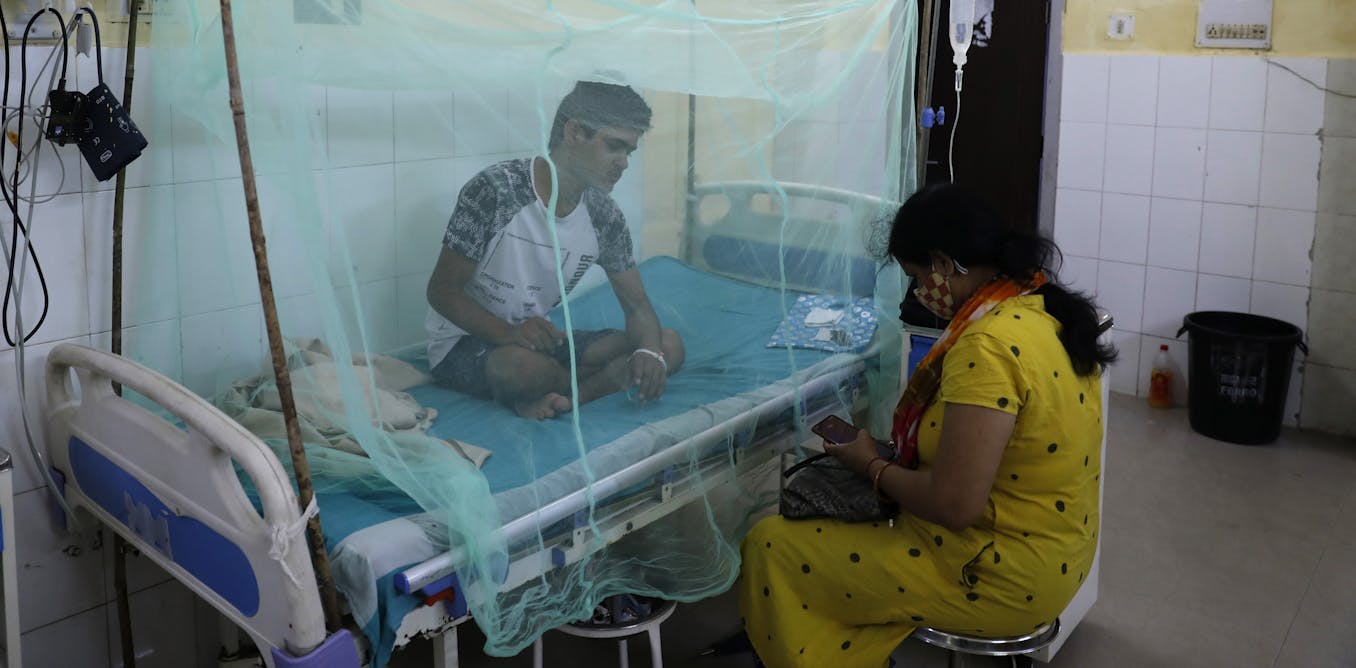
Hospitals are struggling to treat dengue, a viral disease that spreads through the bite of the Aedes aegypti mosquito.
Dengue causes a wide spectrum of disease, ranging from asymptomatic infection to severe flu-like symptoms.Severe dengue infection, though less common, can be accompanied by any number of complications including severe bleeding, organ impairment and plasma leakage from the blood into surrounding tissue.
The risk of death is higher if severe dengue is not managed properly.The Aedes mosquito breeds in stagnant artificial collections of water which abound in homes and other urban areas in India.The dengue virus belongs to the Flaviviridae family, with four closely related but distinct strains – DENV-1, DENV-2, DENV-3, and DENV-4.Peak numbers for dengue are recorded in the post-monsoon period in India.Dengue fever was found to be the main cause.
This is because incidence of this viral disease has increased over 30-fold in the last five decades.
A third of the global burden of dengue is in India.A nationally representative, community-based survey in India showed close to half of the population (48.7%) has been exposed to dengue infection in India at some point in their life.Given the makeup of these states, these statistics show urbanisation is one of the main drivers for rising dengue incidence in India.Results of a trial conducted by Monash University on the efficacy of infecting mosquitoes with a bacteria called Wolbachia show the technique reduced the incidence of dengue by 77%.The Wolbachia bacteria competes with other viruses in the mosquito’s system, such as dengue, zika, chikungunya or yellow fever.
The process of infecting, breeding and then releasing mosquitoes in the community has not yet been cleared for use in India.For those who have never had dengue it can make infection more severe, so it is only recommended for people who have previously had dengue and live in regions where the virus is endemic
Reducing the burden of dengue is something we all must take part in